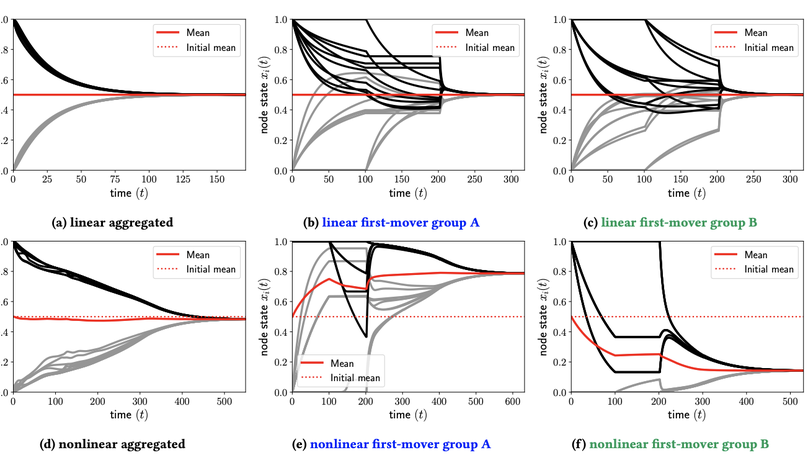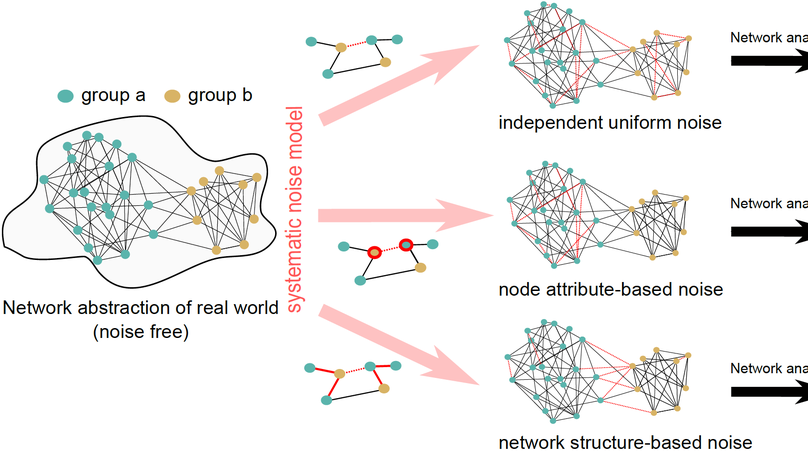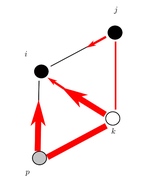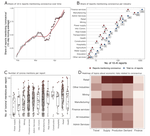About
I am a doctoral researcher in the Computational Network Sciences Group at RWTH Aachen University, where I study the structure and dynamics of complex systems using methods from network science, mathematical modelling and graph learning. In particular, my research topics range from the study of dynamical systems on hypergraphs to investigating inequality and marginalisation through the lens of network analysis. During my PhD, I spent a year in the Governance Programme at the Hertie School Berlin, focusing on data science for public policy and natural language processing and was a visiting researcher at the Social Complexity Lab in Copenhagen.
I am the Social Secretary of the Women in Network Science Society and founding member of Women in AI Aachen. Reach out to me if you want to participate in events, want to know more about the societies or have any other suggestions or requests!
Interests
- Network Science
- Complex Systems
- Computational Social Sciences
Education
MSc in Mathematical Modelling and Scientific Computing, 2019
University of Oxford
BSc in Mathematics, 2017
University of Bonn
BSc in Psychology, 2021
University of Bonn
Recent News
[04/08/23] Our paper on network interventions was recently highlighted in Nature Reviews Physics. The highlight was part of a group of 6 highlights published on network science, celebrating 25 years since the Watts–Strogatz paper. Check it out here!
[06/06/23] New preprint out! In “Learning the effective order of a hypergraph dynamical system” we introduce a method to learn whether we need more than pairwise interactions to represent the underlying structure of a dynamical system.
[23/05/23] Our paper on network growth interventions was published in Communications Physics!
[05/08/22] Preprint alert! In our paper “Improving the visibility of minorities through network growth interventions” we find that group size and behavioural interventions need to be coordinated to benefit the ranking position of minorities.
[15/12/21] Our paper on consensus dynamics on temporal hypergraphs has now been published in Physical Review E!
Projects
Higher-order networks
Inequality in Networks
CoRisk Index
Recorded Talks
Featured Publications
Improving the visibility of minorities through network growth interventions
In this work, we propose a model to examine how network growth interventions impact the position of minority nodes in degree rankings over time. We find that even extreme quotas do not increase minority representation in rankings if the actors in the network do not adopt homophilic behaviour. Thus, interventions need to be coordinated in order to improve the visibility of minorities.

Consensus dynamics on temporal hypergraphs
In this preprint, we investigate consensus dynamics on temporal hypergraphs that encode network systems with time-dependent, multi-way interactions.

Simulating systematic bias in attributed social networks and its effects on rankings of minority nodes
In this paper, we introduce a model for systematic edge uncertainty in attributed networks. Our model enables us to distinguish between erroneous edge observations that are driven by external node attributes or the network structure itself, thereby opening a path towards a systematic study of the effects of edge-uncertainty for various network analysis tasks.
Recent Publications
Multibody interactions and nonlinear consensus dynamics on networked systems
Contact
- neuhaeuser@cs.rwth-aachen.de
- Ahornstraße 55
52074 Aachen - Department of Computer Science, Building E3










